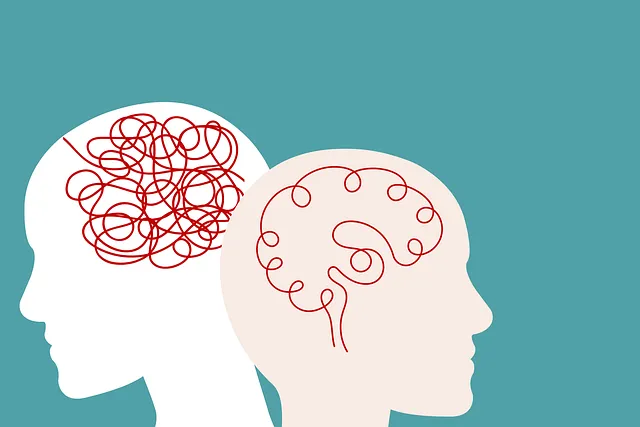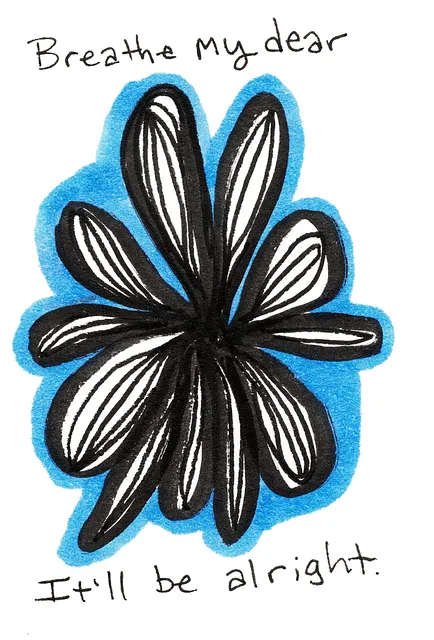Wheat Ridge's Kaiser Inpatient Mental Health services prioritize cultural sensitivity through holistic approaches that integrate emotional intelligence, community outreach, and family involvement. This model ensures tailored care aligned with diverse cultural backgrounds, improving access, retention, and overall well-being for all patients. By addressing stigma and social factors, Wheat Ridge Kaiser enhances treatment outcomes while fostering a safe, inclusive environment for mental health support.
Cultural sensitivity is a cornerstone of modern mental healthcare, ensuring equitable and effective treatment for a diverse range of patients. This article explores this critical aspect through several lenses, including the Kaiser Inpatient Mental Health Model and lessons from Wheat Ridge, a leading facility in cultural competence. We’ll delve into challenges faced and best practices implemented, highlighting the transformative power of training in enhancing care for all, regardless of background. Discover how these approaches can revolutionize mental healthcare accessibility.
- Understanding Cultural Sensitivity in Mental Healthcare
- The Kaiser Inpatient Mental Health Model
- Challenges and Best Practices at Wheat Ridge
- Enhancing Care Through Cultural Competence Training
Understanding Cultural Sensitivity in Mental Healthcare

In the realm of mental healthcare, cultural sensitivity is a cornerstone that ensures effective and compassionate treatment for all individuals, regardless of their ethnic, cultural, or socioeconomic backgrounds. This involves understanding and respecting diverse belief systems, values, and communication styles, which are integral to how one expresses and copes with mental illness. At Kaiser in Wheat Ridge, the inpatient mental health services cater to this need by prioritizing cultural competency among its professionals. By integrating emotional intelligence into their practices, healthcare providers create a safe space where patients feel understood and supported, fostering open dialogue and enhancing treatment outcomes.
Cultural sensitivity goes beyond simple awareness; it drives significant initiatives such as mental illness stigma reduction efforts and risk management planning for mental health professionals. Addressing the unique needs of diverse patient populations not only improves access to quality care but also promotes better retention rates and overall well-being. This holistic approach, combined with a deep understanding of cultural nuances, is pivotal in transforming mental healthcare into a truly inclusive and impactful experience, especially in navigating complex cases that may involve intricate cultural considerations.
The Kaiser Inpatient Mental Health Model

Wheat Ridge’s Kaiser Inpatient Mental Health Model is a notable approach to providing comprehensive care for individuals within their community. This model underscores the importance of Cultural Sensitivity in Mental Healthcare Practice, ensuring that treatment aligns with patients’ diverse cultural backgrounds and beliefs. By integrating cultural considerations, Kaiser aims to foster trust and create an environment where emotional regulation can thrive.
The inpatient program offers a safe space for patients to receive intensive care while being mindful of the unique challenges faced by different communities. Through Community Outreach Program Implementation, Kaiser connects with local resources, promoting holistic healing that addresses not just mental health issues but also cultural and social factors at play. This strategy enhances patient outcomes and promotes better emotional regulation, reflecting Kaiser’s commitment to revolutionize mental healthcare through cultural sensitivity.
Challenges and Best Practices at Wheat Ridge

Wheat Ridge, a part of the Kaiser network, is renowned for its comprehensive mental healthcare services, including inpatient care. However, providing culturally sensitive treatment presents unique challenges. The diverse patient population brings a wide range of cultural beliefs, practices, and expectations, demanding tailored approaches to depression prevention and mood management.
To address these complexities, Wheat Ridge embraces best practices such as incorporating emotional intelligence in therapist training. This fosters deeper understanding and connection with patients from various cultural backgrounds. They also actively involve families and communities in the healing process, recognizing their pivotal role in supporting individuals through mental health journeys. These initiatives ensure that each patient receives care that respects their cultural identity, ultimately enhancing treatment outcomes.
Enhancing Care Through Cultural Competence Training

In today’s diverse society, cultural sensitivity is paramount in mental healthcare. Training programs, such as those offered at Wheat Ridge Kaiser, equip practitioners with essential tools to provide inclusive and effective care. By enhancing cultural competence, healthcare professionals can navigate the intricate labyrinth of different belief systems and traditions, ensuring every patient receives personalized treatment. This approach fosters a safe space where individuals from various backgrounds feel understood and supported during their mental health journey.
Cultural competence training goes beyond basic awareness; it empowers practitioners to incorporate strategies like Mindfulness Meditation and enhance communication with patients from diverse cultures. These techniques not only improve clinical outcomes but also promote Mental Health Awareness, ensuring that every patient’s unique needs are addressed. Through these initiatives, institutions like Wheat Ridge Kaiser strive to revolutionize mental healthcare, making it accessible and culturally responsive for all.
Cultural sensitivity in mental healthcare is a dynamic field, constantly evolving to meet the diverse needs of patients from various backgrounds. As institutions like Kaiser offer evidence-based models, such as their inpatient mental health services at Wheat Ridge, integrating cultural competence training becomes paramount. By addressing challenges and adopting best practices, mental health providers can ensure that care is not only effective but also respectful and tailored to individual cultural contexts. This approach not only enhances patient outcomes but also fosters a more inclusive healthcare system that truly supports the well-being of all.






